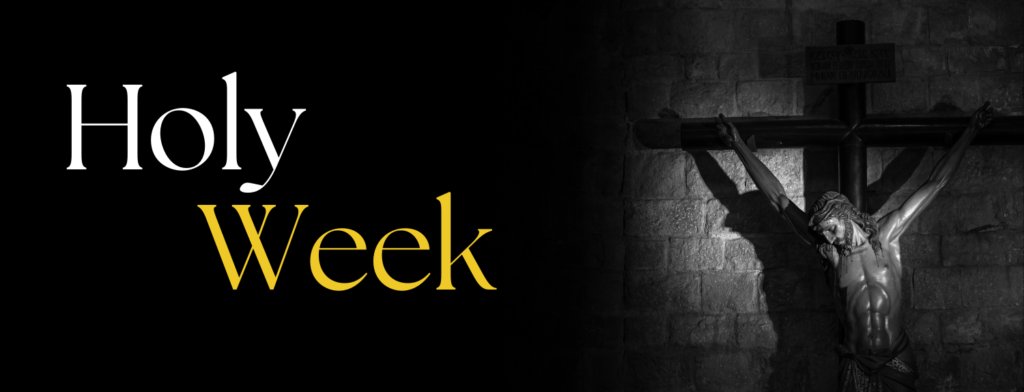
The Last Words
“Father, into your hands, I commend my spirit.” Luke 23:46
My oft-referenced favored preacher, Fleming Rutledge, tells a story of a professor she greatly admired. This man, a theologian, lost his only son to a rare disease at the age of twenty-three. Much later, while reflecting on his grief, he told Rutledge, “The Christian life is lived in-between—in between ‘My God, my God, why hast thou forsaken me?’ and ‘Father, into your hands, I commend my spirit.’” To re-frame this statement using the traditional names of the fourth and seventh words, much of the Christian life is lived between the Word of Anguish (“My God, my God, why hast Thou forsaken me?”) and the Word of Contentment (“Father, into your hands, I commend my spirit.”). I am sure that Rutledge’s bereaved professor would be the first one to tell you, it is a difficult place to live.
So, given the difficulty of the in-between, why is it traditional to call this seventh word from the cross the “Word of Contentment?” To be sure, Jesus was aware of the joy that was coming: his glorious resurrection, his ascension into heaven, his enthronement at the Father’s right hand. But the moment in which Jesus speaks this word is hardly a moment of contentment. Jesus has been beaten, tortured, and mocked. He has just spoken a word of anguish and a word of suffering. We mustn’t strip this moment of its due horror—Jesus, the Son of God, is dying on a cross.
It is hard to imagine that Luke’s Gospel includes this word from the Cross to paint a peaceful, Precious Moments-esque image of Jesus passing from the Cross into his heavenly reward. What makes this word a “Word of Contentment” is not the tranquility of Jesus’s soul as he uttered it, but his willingness to abide in the love and will of the Father at the final moment of his life.
 From the cross, at the last, Jesus speaks to his Father. Frederick Buechner writes, “Jesus shares with us the darkness of what it is to be without God as well as showing forth the glory of what it is to be with God.” In the Cross is both darkness and light, the absence of God and the presence of God. When the criminal turns to Jesus and asks to be remembered, Jesus responds in faith, “Today, you will be with me in Paradise.” In the throes of death, Jesus still trusts God so completely that he assures another dying man that Paradise awaits. This is what it means to abide, to rest, to be content with God—at the last, when all seems to have been lost, when God seems to have turned his face away and hell itself seems to shroud the earth in darkness, to cry out, “Father, into your hands, I commend my spirit.”
From the cross, at the last, Jesus speaks to his Father. Frederick Buechner writes, “Jesus shares with us the darkness of what it is to be without God as well as showing forth the glory of what it is to be with God.” In the Cross is both darkness and light, the absence of God and the presence of God. When the criminal turns to Jesus and asks to be remembered, Jesus responds in faith, “Today, you will be with me in Paradise.” In the throes of death, Jesus still trusts God so completely that he assures another dying man that Paradise awaits. This is what it means to abide, to rest, to be content with God—at the last, when all seems to have been lost, when God seems to have turned his face away and hell itself seems to shroud the earth in darkness, to cry out, “Father, into your hands, I commend my spirit.”
When the darkness closes in, only the Father remains. The Father, who tore the heavens open to declare to His Son, “You are my beloved Son, in whom I am well pleased.” The Father, who declared to Moses that his very name was, “The Lord, the Lord, a God merciful and gracious, slow to anger, and abounding in steadfast love and faithfulness, keeping steadfast love for the thousandth generation.” In his seventh word from the Cross, Jesus shows us how to die, yes, but also how to live: “Father, into your hands, I commend my Spirit.”
The Rev. Bree Snow
Deacon | Minister of Formation and Catechesis

